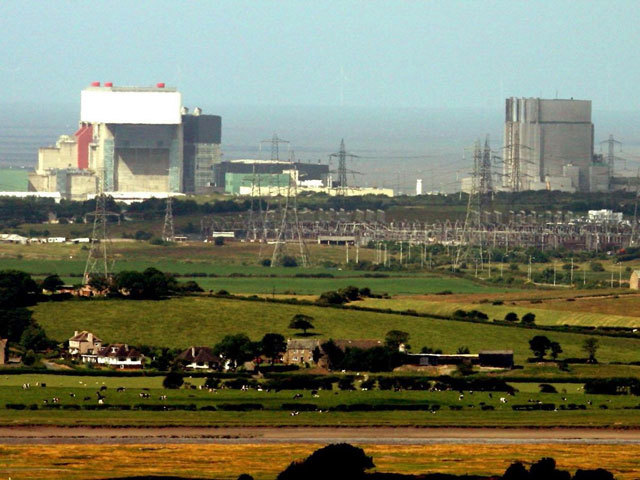
Communities could be paid millions of pounds just to consider having a facility to bury nuclear waste in their area, the Government has said.
Community projects could receive payments of up to £1million a year if local people engage with officials about developing a geological disposal facility to permanently store underground the radioactive waste from nuclear power, industry and defence.
The figure would rise to £2.5million a year if drilling of bore-holes to assess the suitability of a site went ahead – money that would be “no strings attached” as the community would still not be tied in to hosting a site.
With the process of talking to communities and investigating sites taking up to two decades, communities could be paid more than £40million without committing to accepting a £12billion nuclear waste facility – with increased payments if it gets the go-ahead.
The Government said going ahead with a facility, which would be paid for by the taxpayer and take 100 years to plan, construct, fill and seal off, could also bring hundreds of jobs and economic benefits to an area.
The Department of Energy and Climate Change (DECC) outlined the potential payments as part of its new strategy to develop facilities to safely bury radioactive waste deep underground.
The strategy comes after a previous attempt to push forward with a site in Cumbria was scuppered when leaders of Cumbria County Council voted against the plans.
DECC officials said they were continuing with a voluntary approach which would mean construction would go ahead only if the community in the area was happy with it.
But they said that while all levels of local government would have a voice in deciding on a site, no single level should have a veto – as was the case in Cumbria where the borough council backed moving the plans forward but county council leaders voted it down.
The UK has a legacy of spent fuel from existing nuclear power plants and other radioactive waste, which is stored temporarily at secure nuclear sites across the country, but storage underground is considered the best long-term option for it.
When the current fleet of nuclear power plants are decommissioned, the amount of radioactive waste which needs to be dealt with will be enough to fill six Albert Halls, while new planned reactors will eventually produce another Albert Hall’s worth.
Over the next two years, officials will develop the process of working with communities and conduct geological screening across England and Wales to assess the geology that might be suitable for a storage site.
The geological assessment will not identify potential individual sites but it may rule out areas with features such as large underground aquifers, coal or mineral deposits.
Communities will be invited to come forward from 2016 to talk to the Government about hosting a facility.
“Geological disposal provides the secure, long-term solution we need to deal with the radioactive waste we have been creating for more than 60 years, and we can learn from the experiences of other countries who are also doing this,” said Energy and Climate Change Secretary Ed Davey.
“Today we’re setting out our plan to find a suitable site, based on a fundamental process of listening to people, to make sure we have the right process in place.
“The area that eventually hosts a geological disposal facility will benefit from significant investment in the community and hundreds of skilled jobs for decades to come.”
Recommended for you
